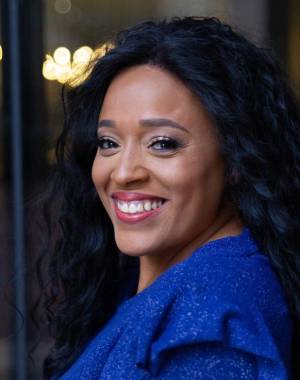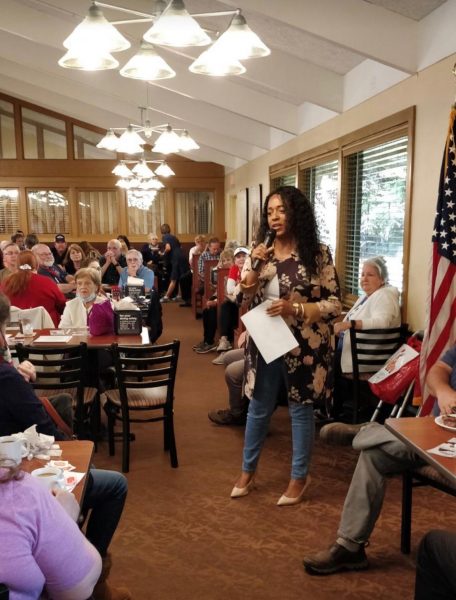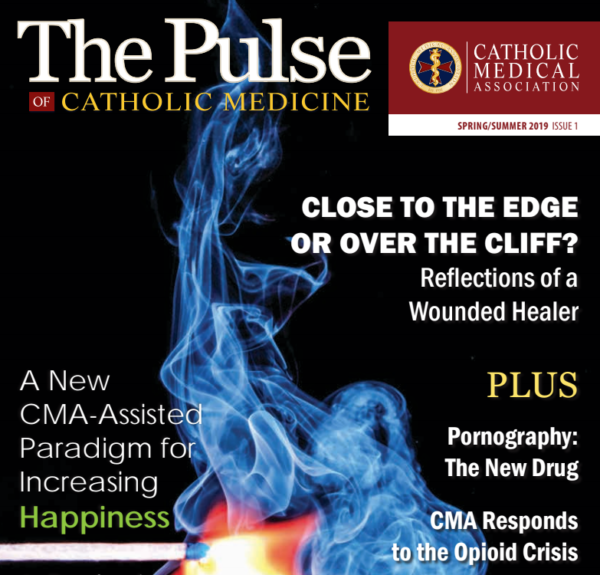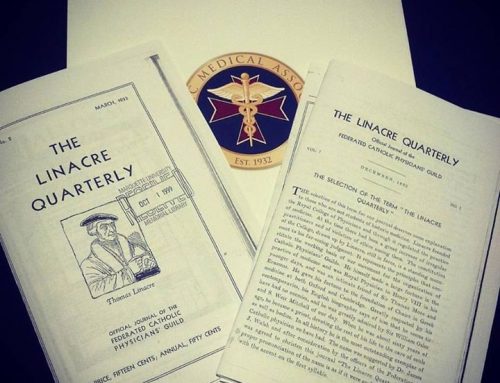Tanya Gould:
BY JENNIFER BRANSON

No one ever told Tanya Gould about her own worth. Growing up, she did not feel valuable — a result of the sexual abuse she experienced from a family member from age seven to 14.
When a handsome older man came into Gould’s life on a blind date at an amusement park and charmed her with a big dazzling grin, his undivided attention, and gifts of whatever she wanted, she felt a sense of her own value for the first time. Recalling this first meeting with the man who would soon traffic her, Gould says, “That’s how he was able to coerce me into trafficking; he made me feel like I was worth something.”
Gould is now a consultant with Global Strategic Operatives (GSO), an organization founded to assist the United Nations in combating human trafficking worldwide. The Catholic Medical Association has joined with GSO to support its mission.
Gould was 18 at the time of the blind date and the man was ten years older, but it didn’t seem like a big deal. She had a son and an apartment and was looking forward to starting college in the fall. He’d been introduced to her by friends. Boyfriends had come and gone, but this man was different. He cared about her life; even though they lived in different areas, he kept in touch with her and provided the listening ear she had never had. Eventually, as she poured out her soul to him over long talks, they started dating.
When he asked her to start making money for him through sex work, her first reaction was to reject his proposition unequivocally. But he overcame her trepidation through a cold logic: she had slept with many men and where had it gotten her? What benefit did she have from it? His women, at least, made money. This “reasoning,” as well as her desire to keep the relationship she had built with the trafficker, led her to agree. She had come to rely on him emotionally, and she now realized that she could provide value to him through both her companionship and the monetary value of her “work.” He called her his “queen,” his partner in the business, and she worked for him, she thought, willingly.
Gould’s trafficker became everything to her: Her “daddy,” the source of her love and support, the one person in the world who knew her and found value in her. She went with him everywhere, not knowing from one night to the next whether they were going across town or across state lines. Her son stayed with her sister when it was possible, but more often than not in a daycare that the trafficker had arranged for the women he exploited.

Soon enough, however, the illusion of any real control faded for Gould. She started making mistakes, such as coming back with less money than expected or accidentally letting the wad of cash fall out of her dress. The young women that worked for her trafficker were not allowed to carry a purse or any personal items like identification. Everything she took with her would have to be stashed inside her clothing, so it was easy to lose things. When she made these mistakes, her trafficker demoted her to riding in the backseat of the car and kept her from attending school or seeing her son. She eventually dropped out of school. She had nothing but her trafficker, but he started pulling away from her too.
Any delusion she had about her situation dissipated one night when she made yet another mistake and thought she was going to be beaten for it. Her trafficker told her, “I’m not going to hit you because you’re not worth it.” He pulled over at a bus station and told her to leave because she was trash to him. She pleaded with him and told him she loved him and wanted things to be like they were in the beginning. He told her that to prove her love for him she had to crawl on her hands and knees in a mud puddle by the side of the road. She rode back with the trafficker in the back of the car — broken.
“I lost my dignity, my courage,” she said, “I had given everything to him in the name of love, or what I thought love was.” She made up her mind that she needed to get out.
One night, she was working to make double the money for the trafficker, and she got into a car she normally wouldn’t have gotten into because of the urgency of making money. She tried to direct the driver of the car to the place they were told to bring buyers, but the driver refused and drove several miles to a gravel lot. There he held her at knifepoint for her money, but she refused to give it to him because she didn’t want to go back to the trafficker without it. He jumped on top of her with the knife and they struggled, with the driver gaining on her in strength. As she faced death, she heard a voice in the back of her mind say, “What are you doing; you have a son.”
“When I heard that voice, it was like I had these blinders on my eyes and they had fallen,” Gould said, “I’m thinking, if I die tonight, no one knows where my son is. Only my pimp. And he would have him.”
She gave the driver the money and he threw her out of the car. She didn’t know where she was, but she started walking toward the city and saw a police car. The officer stopped and asked her what she was doing, but his voice sounded like that of a father, not an accuser. She had always been told that the police would beat her and arrest her, but this man seemed to have true compassion. She broke down and told him. He let her sleep in the back of the squad car until his shift was over, then he bought her a bus ticket to get her son and go home, making her promise not to go back out on the street again.
“The transition was the hardest thing I’ve ever had to do,” Gould recounted.
She sought help to get a new place to live. The trafficker had flowers delivered to her at her new apartment and at her mother’s house with messages that read, “You can’t hide from me, I’ll always know where you are.” She watched her back when she left the house for a while, but the retaliation never came.
Still, she didn’t fully believe that she had been manipulated; she believed that her trafficker loved her and wanted to be with her, so she went back to him twice. The last time, she met him at his new restaurant, a business that they had always dreamed of opening together. He had used the money from her and the other young women he exploited to open it alone.
“That was my moment of ‘oh wow,’ he really manipulated me and used me to do what he wanted to do for his gain,” she recalled.
Gould was able to rely on government assistance to get help with housing, job training, school, and career development. It was neither easy nor seamless, and the therapy she desperately needed was late in coming, but eventually she went back to school. She chose to use her degree in communications to become a voice for human trafficking survivors through her work in advocacy, mentoring, and speaking.
She is currently running for the Virginia House of Delegates in her district. She knows that government systems are there to help victims, but she believes, based on her experience, they are not being executed well. She hopes to bring her knowledge to the office and use her voice and advocacy on a larger scale.

This drive to help others like her also recently led Gould to join the Global Strategic Operatives in its international work training medical professionals to identify and aid human trafficking victims. She encountered GSO through a recommendation from another survivor. She works as a survivor-leader, where she, along with other survivors, develops training materials for doctors. She looks specifically at the language they use and makes sure it is survivor-informed and coherent to someone in a trafficking situation.
She acknowledges that a great deal of effort is required to truly help victims of human trafficking, but she encourages doctors, other medical professionals, politicians, social workers and those in the fight not to be afraid to make those sacrifices, as they can be lifesaving.
For Gould, the fight against human trafficking starts and ends with a simple pro-life principle: treating every person with dignity and convincing them that they matter.
“That’s what’s missing with all of the kids I work with,” she said, “Love in action.”
If someone other than her trafficker had treated her as if her life had value earlier, perhaps things would have been different. But for the next vulnerable person, thanks to the good work of GSO and survivors like Gould, there is hope things will be.SHARE
© 2021 The Pulse of Catholic Medicine








